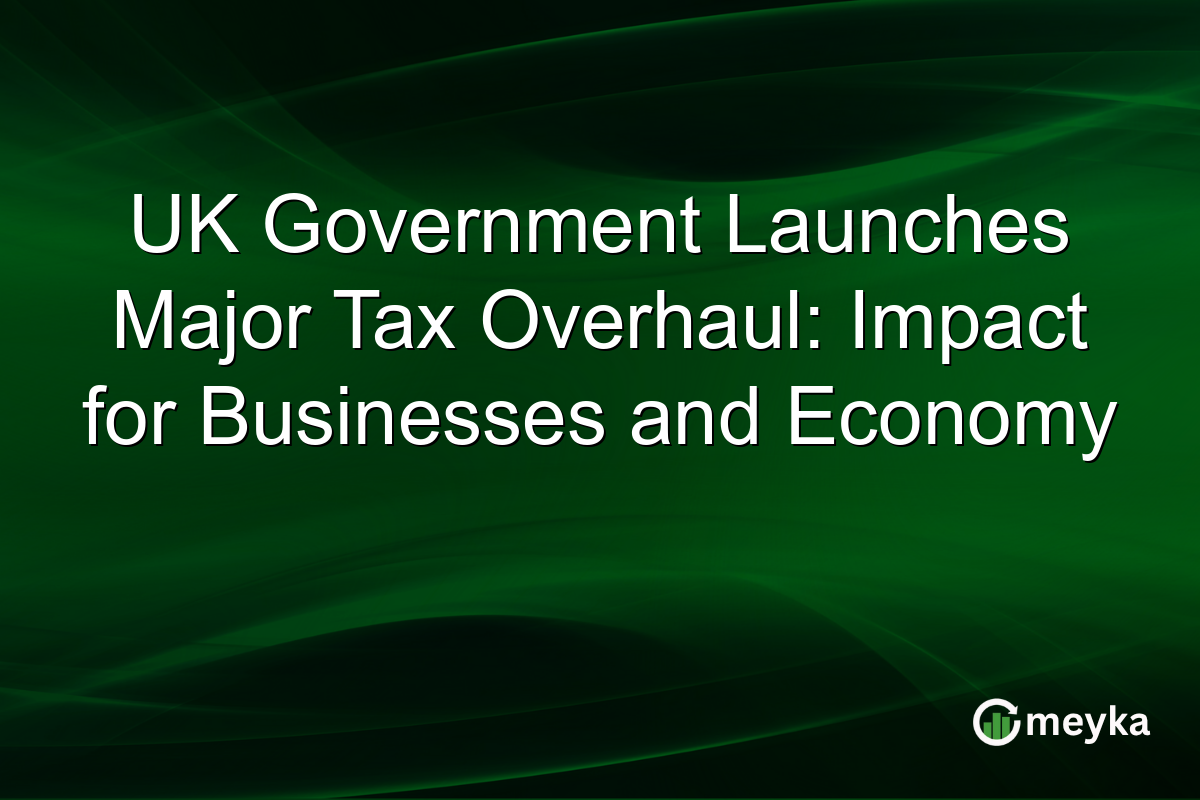UK Government Launches Major Tax Overhaul: Impact for Businesses and Economy
The UK government has recently unveiled a major tax overhaul, aiming to simplify corporate tax filings and stimulate investment. This reform is a critical shift designed to boost post-pandemic recovery among businesses. It’s discussed widely on gov.uk and official channels, drawing mixed reactions from businesses and investors. Let’s look into how these changes could affect the UK economy and business landscape.
Understanding the Tax Overhaul
The UK government tax overhaul is a sweeping reform aiming to simplify corporate tax structures. By easing filing processes and adjusting tax rates, it seeks to encourage business growth. The announcement includes comprehensive changes such as reduced compliance requirements and updated digital reporting standards, which are essential for improving operational efficiency. These changes reflect a commitment to make the UK a more attractive place for business investment. This shift is expected to impact businesses of all sizes, with particular benefits for small and medium enterprises (SMEs). The reforms promise a more straightforward tax environment, potentially reducing administrative burdens and costs. For more about these changes, visit Reuters.
Potential Impacts on Businesses
Tax reform for UK businesses aims to enhance competitiveness and attract international investments. By adjusting tax rates and implementing new thresholds, the reform could lead to increased cash flow and reinvestment in business growth. Critics, however, caution that the sudden changes may initially lead to confusion, especially regarding interpretation and implementation. Furthermore, changes in audit and filing requirements demand that businesses adapt quickly to remain compliant. Some observers note that this may disproportionately affect smaller businesses that lack resources compared to larger corporations. Stay updated with HMRC policy changes at Bloomberg.
Economic Implications and Market Sentiment
The economic implications of the UK government tax overhaul are significant. Analysts suggest that over time, the changes could lead to higher investment levels and a more dynamic economic environment. With newfound incentives for operational expansion and innovation, businesses might experience a resurgence in post-pandemic growth. Market sentiment appears cautiously optimistic. While some investors express concerns over the speed and scale of changes, others are hopeful about long-term growth. This government initiative might be a turning point in fostering economic resilience in a challenging global climate. For insights on market sentiment, see discussions on FT.
Final Thoughts
In conclusion, the UK government tax overhaul marks a pivotal moment for the business landscape. With its focus on easing the tax burden and fostering investment, this reform has the potential to transform the economic climate favorably over time. However, businesses must stay informed and agile to navigate the changes effectively. As the regulatory details unfold, it is crucial for businesses and investors to monitor ongoing updates and prepare strategically. The ultimate success of these tax reforms will depend on their implementation and the ability of businesses to adapt. By understanding the nuances of the gov.uk new tax rules, UK businesses can seize opportunities for growth and stability in an evolving market climate.
FAQs
The main goal is to simplify corporate tax filings and promote business investment, boosting the post-pandemic economy. This involves reduced compliance costs and revised tax structures for greater efficiency.
The reform aims to benefit SMEs by reducing administrative burdens and compliance costs, facilitating a better environment for growth and reinvestment. It simplifies processes to help these businesses thrive.
Key components include simplified filing processes, adjusted tax rates, new digital reporting standards, and revised compliance requirements. These changes intend to create a more business-friendly environment.
Market sentiment will play a critical role. Positive reception and trust in the long-term benefits can drive investment and economic resurgence, while skepticism may slow initial uptake.
Disclaimer:
This is for information only, not financial advice. Always do your research.






